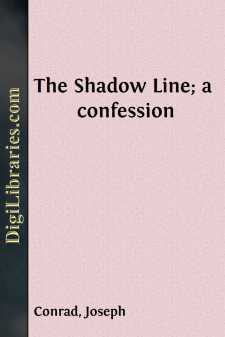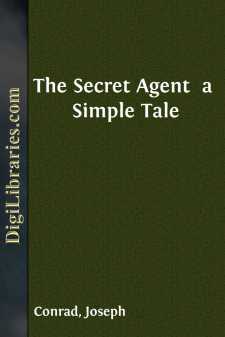Categories
- Antiques & Collectibles 13
- Architecture 36
- Art 48
- Bibles 22
- Biography & Autobiography 813
- Body, Mind & Spirit 141
- Business & Economics 28
- Children's Books 12
- Children's Fiction 9
- Computers 4
- Cooking 94
- Crafts & Hobbies 4
- Drama 346
- Education 46
- Family & Relationships 57
- Fiction 11826
- Games 19
- Gardening 17
- Health & Fitness 34
- History 1377
- House & Home 1
- Humor 147
- Juvenile Fiction 1873
- Juvenile Nonfiction 202
- Language Arts & Disciplines 88
- Law 16
- Literary Collections 686
- Literary Criticism 179
- Mathematics 13
- Medical 41
- Music 40
- Nature 179
- Non-Classifiable 1768
- Performing Arts 7
- Periodicals 1453
- Philosophy 64
- Photography 2
- Poetry 896
- Political Science 203
- Psychology 42
- Reference 154
- Religion 513
- Science 126
- Self-Help 83
- Social Science 81
- Sports & Recreation 34
- Study Aids 3
- Technology & Engineering 59
- Transportation 23
- Travel 463
- True Crime 29
The Shadow Line; a confession
by: Joseph Conrad
Categories:
Description:
Excerpt
I
Only the young have such moments. I don't mean the very young. No. The very young have, properly speaking, no moments. It is the privilege of early youth to live in advance of its days in all the beautiful continuity of hope which knows no pauses and no introspection.
One closes behind one the little gate of mere boyishness—and enters an enchanted garden. Its very shades glow with promise. Every turn of the path has its seduction. And it isn't because it is an undiscovered country. One knows well enough that all mankind had streamed that way. It is the charm of universal experience from which one expects an uncommon or personal sensation—a bit of one's own.
One goes on recognizing the landmarks of the predecessors, excited, amused, taking the hard luck and the good luck together—the kicks and the half-pence, as the saying is—the picturesque common lot that holds so many possibilities for the deserving or perhaps for the lucky. Yes. One goes on. And the time, too, goes on—till one perceives ahead a shadow-line warning one that the region of early youth, too, must be left behind.
This is the period of life in which such moments of which I have spoken are likely to come. What moments? Why, the moments of boredom, of weariness, of dissatisfaction. Rash moments. I mean moments when the still young are inclined to commit rash actions, such as getting married suddenly or else throwing up a job for no reason.
This is not a marriage story. It wasn't so bad as that with me. My action, rash as it was, had more the character of divorce—almost of desertion. For no reason on which a sensible person could put a finger I threw up my job—chucked my berth—left the ship of which the worst that could be said was that she was a steamship and therefore, perhaps, not entitled to that blind loyalty which. . . . However, it's no use trying to put a gloss on what even at the time I myself half suspected to be a caprice.
It was in an Eastern port. She was an Eastern ship, inasmuch as then she belonged to that port. She traded among dark islands on a blue reef-scarred sea, with the Red Ensign over the taffrail and at her masthead a house-flag, also red, but with a green border and with a white crescent in it. For an Arab owned her, and a Syed at that. Hence the green border on the flag. He was the head of a great House of Straits Arabs, but as loyal a subject of the complex British Empire as you could find east of the Suez Canal. World politics did not trouble him at all, but he had a great occult power amongst his own people.
It was all one to us who owned the ship. He had to employ white men in the shipping part of his business, and many of those he so employed had never set eyes on him from the first to the last day. I myself saw him but once, quite accidentally on a wharf—an old, dark little man blind in one eye, in a snowy robe and yellow slippers. He was having his hand severely kissed by a crowd of Malay pilgrims to whom he had done some favour, in the way of food and money....












